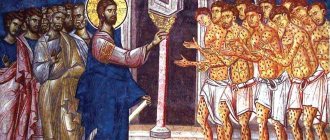Fornication or adultery is sexual relations between unmarried people.
The Bible clearly condemns such actions: “You shall not commit adultery.” (Exodus 20.14) Adultery is the breaking of marital promises to be faithful to one's spouse.
“Let everyone’s marriage be honorable and the bed undefiled; But God judges fornicators and adulterers.” (Heb. 13:4) And in Eccl. 3:11 says, “He made all things beautiful in their time.” And the time He intended for sexual intimacy between a man and a woman is in marriage. To have such intimacy before marriage or with another partner with whom you are not in a marital relationship is disobedience to the will of God. Regardless of whether a spouse has consented to the extramarital affair, it does not mean that it is acceptable in the eyes of God.
Run away from sexual promiscuity
Paul clearly warns us: “Flee fornication; Every sin that a person commits is outside the body, but the fornicator sins against his own body.” (1 Cor. 6:18) It is a privilege that God has given us a body, and we should use it to God's honor. “Do you not know that your body is a temple of the Holy Spirit who dwells in you, which you have from God, and you are not your own? For you were bought at a price. Therefore glorify God both in your body and in your soul, which are God’s.” 1 Cor. 6:19-20
The potential for how we can use our bodies to God's honor is emphasized in 1 Thess. 4:3-5 “For this is the will of God, your sanctification, that you abstain from sexual immorality; so that each of you knows how to keep his vessel in holiness and honor, and not in the passion of lust, like the pagans who do not know God.” Purification is the process that takes place in those who have submitted their bodies to obedience to the will of God, and as a result of this, such people will receive a share in His glory (receive God's life and nature)
In the New Testament, Jesus speaks about adultery and infidelity, which involve a hidden agenda in the heart: “You have heard that it was said to the ancients, “You shall not commit adultery.” But I tell you that anyone who looks at a woman lustfully has already committed adultery with her in his heart.” (Matt. 5:27-28) Jesus also draws attention to the radical attitude one must have in order not to fall into such sins: “If your right eye causes you to sin, pluck it out and throw it away from you, for it is better for you, so that one of your members may perish, and not your whole body be thrown into hell. And if your right hand causes you to sin, cut it off and throw it away from you, for it is better for you that one of your members should perish, and not that your whole body should be cast into hell" (Matthew 5:29-30)
Book of Wisdom of Jesus son of Sirach, Chapter 23, verses 20-37
The “Books of Wisdom” or “wise” are called five books: Job, Proverbs, Ecclesiastes, Jesus son of Sirach and the Wisdom of Solomon. They were joined by the Psalter and Song of Songs, in which we find the same direction of thought expressed in poetic form. Works of this kind were widespread throughout the ancient East. Over the course of its centuries-old history, many books of wisdom have appeared in Egypt. In Mesopotamia, starting from the Sumerian era, parables, fables, and poems about suffering were compiled, which to some extent remind us of the book. Job. This Mesopotamian wisdom found its way into Canaan: wisdom texts in Akkadian were found at Ras Shamra. The "Wisdom of Ahiahara", which appeared in Assyria and spread among Aramaic-speaking circles, was then translated into several ancient languages. This kind of wisdom is essentially international and is not strictly religious. The focus of the wise is on a person’s life path, but their method is not philosophical reflection, like the Greeks, but collecting the fruits of life experience. They teach the art of living and being at the intellectual level of their environment and era; They teach a person to conform to the order of the universe and indicate how to achieve happiness and success. However, their advice does not always lead to the desired results, and this experience serves as the starting point of pessimism, which permeates a number of works of wisdom in both Egypt and Mesopotamia.
Such wisdom flourished among the Israelites. It is characteristic that the Israeli sages recognized their connection with the wisdom of the “sons of the East and Egypt” and considered the best praise for the wisdom of Solomon to be the statement of its superiority over the wisdom of the pagans (1 Kings 4:29). The sages of Arabia and Edom were widely known (Jer 49:7; Bar 3:22-23; Obd 1:8). Job and his three wise men lived in Edom. Author of the book. Tobit knew the Wisdom of Ahiachara, and Proverbs 22:17-23:11 are reminiscent of the Egyptian sayings of Amenemope. Some psalms are attributed to Heman and Ethan, who, according to 1 Kings 4:31, were wise men of Canaan. Proverbs contains the Words of Agur (Prov. 30:1-14) and the Words of Lemuel (Prov. 31:1-9), who both came from the tribe of Massah, who lived in northern Arabia (Gen. 25:14).
Therefore, it is not surprising that the first Israeli works of wisdom are in many ways related to the works of neighboring peoples. The most ancient parts of the book. Proverbs contains only the prescriptions of human wisdom. The most important theological themes of the Old Testament: Law, Covenant-Union, Election, Salvation - are hardly touched upon in these books. The exception is the book. Jesus son of Sirach and the Wisdom of Solomon, written much later. The Israeli sages seem to have no interest in the history and future of their people. Like their Eastern counterparts, they are more concerned with the personal destiny of man, but they consider it on a higher plane - in illuminating the religion of Yahweh. Thus, despite the common origin, there is a significant difference between the wisdom of the pagans and Israel, which intensifies as Revelation gradually unfolds.
The opposition between wisdom and madness becomes the opposition between truth and untruth, piety and impiety. True wisdom is the fear of God, and the fear of God is synonymous with godliness. If Eastern wisdom can be defined as a kind of humanism, then Israeli wisdom can be called religious humanism.
However, this religious value of wisdom did not emerge immediately. Contents of heb. The term “Hochma” is very difficult. It can mean dexterity of movement or professional dexterity, political flair, insight, as well as cunning, skill, and the art of magic. Such human wisdom can serve both good and evil, and this ambiguity to some extent explains the negative judgments of some prophets about wise men (Isaiah 5:21; Isaiah 29:14; Jeremiah 8:9). This also explains that in Heb. In writing, the theme of the Wisdom of God (Hebrew “khokhmot” is a plural used in the superlative sense) appears quite late, although the origin of wisdom from God was never denied, and already in Ugorit wisdom was considered a property of the great god El. Only after the Captivity did they begin to assert that God is wise by supermundane Wisdom, the effect of which man sees in creation, but which in its essence is inaccessible and “unsearchable” (Job 28; Job 38-39; Sir 1:1-10; Sir 16:24 f. ; Sir 39:12 ff; Sir 42:15-43:33, etc.). In the large prologue of the book. Proverbs (Proverbs 1-9) The wisdom of God speaks as a certain person, it is inherent in God from eternity and acts with Him in creation (Ch. Proverbs 8:22-31). In Sir 24, Wisdom herself testifies that she came from the mouth of the Most High, dwells in heaven and was sent to Israel from God. In Wis 7:22-8:1 it is defined as the outpouring of the glory of the Almighty, the image of His perfection. Thus, Wisdom, being a property of God, is separated from Him and presented as a Person. For an Old Testament person, these expressions are, apparently, vivid poetic comparisons, but they already contain a secret that prepares the revelation of the Holy Trinity. Like the Logos in the Gospel of John, this Wisdom is both in God and outside of God, and in all these texts the name “Wisdom of God” is justified, which the ap. Paul gives to Christ (1 Cor 1:24).
The question of man's fate is closely connected among the sages with the problem of retribution. In the ancient parts of Proverbs (Proverbs 3:33-35; Proverbs 9:6, Proverbs 9:18) Wisdom, i.e. righteousness certainly leads to prosperity, and madness, i.e. wickedness leads to ruin, for God tends to reward the good and punish the wicked. However, life experience often seems to contradict this view. How to explain the disasters that befall the righteous? The book is devoted to this problem. Job. The same questions, although in a slightly different aspect, trouble Ecclesiastes. The son of Sirach generally adheres to traditional views and praises the happiness of the wise (Sir 14:21-15:10), but he is haunted by the thought of death. He knows that everything depends on this last hour: “It is easy for the Lord on the day of death to reward a man according to his deeds” (Sir 11:26, cf. Sir 1:13; Sir 7:36; Sir 28:6; Sir 41:12 ). He vaguely anticipates the revelation of man's ultimate fate. Soon after him, the prophet Daniel (Dan 12:2) already clearly expresses faith in reward after death, associated with faith in the resurrection of the dead, since Heb. thought cannot imagine the life of the spirit separated from the flesh. A parallel and at the same time more developed teaching appears in Alexandrian Judaism. Plato's teaching about the immortality of the soul helped Heb. thoughts to realize that “God created man for incorruptibility” (Wis. 2:23) and after death the righteous will taste eternal bliss from God, and the wicked will receive their deserved punishment (Wis. 3:1-12).
The original form of writing of the wise can be considered mashal (in Russian translation - a parable). This is the plural title of the book, which we call the book. Proverbs. Mashal is a short, expressive saying, close to folk wisdom preserved in proverbs. Ancient collections of parables contain only such short sayings, but over time the mashal develops, reaching the size of a small parable or an allegorical narrative. This development, clearly expressed in additional sections and especially in the prologue of the book. Proverbs (Proverbs 1-9), accelerates in subsequent books of the wise: book. Job and the Wisdom of Solomon are major literary works.
The original origin of wisdom should be sought in the life of a family or clan. Observations of nature or people, accumulated from generation to generation, were expressed in sayings, in folk sayings, in proverbs that had a moral character and served as rules of behavior. The origin of the first formulations of customary law is similar, which are sometimes close not only in content, but also in form to sayings of wisdom. This tradition of folk wisdom continued to exist in parallel with the emergence of written collections of wisdom. It owes its origin to, for example, the parables in 1 Samuel 24:14; 1 Kings 20:11, fable in Judges 9:8-15, fable in 2 Kings 14:9. Even the prophets drew from this heritage (eg Isa 28:24-28; Jer 17:5-11).
Brief sayings, imprinted in memory, are intended for oral transmission. The father or mother teaches them to their son at home (Prov. Prov. 1:8; Prov. 4:1; Prov. 31:1; Sir 3:1), and then the wise continue to teach them in their schools (Sir 41:23; Sir 41:26 ; cf Proverbs 7:1 ff; Proverbs 9:1 ff). Over time, wisdom becomes the privilege of the educated class: the wise and the scribes appear side by side in Jeremiah 8:8-9. The son of Sirach Sir 38:24-39:11 praises the profession of a scribe, which gives him the opportunity to acquire wisdom as opposed to manual crafts. The scribes became royal officials, and the teaching of wisdom was first cultivated at court. The same thing happened in other centers of Eastern wisdom, in Egypt and Mesopotamia. One of Solomon's collections of proverbs was compiled by "the men of Hezekiah king of Judah," Proverbs 25:1. These sages not only collected ancient sayings, but also wrote them themselves. Two works, most likely composed at the court of Solomon - the history of Joseph and the history of the succession to the throne of David - can also be considered as the writings of the wise.
Thus, the circles of the wise differ significantly from the environment in which the priestly and prophetic writings appeared. Jeremiah 18:18 lists three different classes—priests, wise men, and prophets. The wise are not particularly interested in the cult, they seem not to care about the misfortunes of their people and are not captured by the great hope that sustains them. However, in the era of Captivity, these three currents merge. In the prologue of Proverbs, the tone of a prophetic sermon is heard, in the book. Sir (Sir 44-49) and Prem (Wis 10-19) contain many reflections on the Sacred History; the son of Sirach reveres the priesthood, is zealous for the cult, and even identifies Wisdom and the Law (Sir 24:23-34): before us is already the union of the scribe (or wise) with the teacher of the law, which can be seen in Hebrew. environment of gospel times.
Thus ends the long journey that Solomon began in the OT. All the teaching of the wise, gradually taught to the chosen people, prepared the minds to receive a new revelation - the revelation of the Incarnate Wisdom, which is “greater than Solomon” (Matthew 12:42).
Tempted in all things like us, except sin
When we are tempted to have unclean thoughts, then we must remember that Jesus made a way for us without sin: “For we do not have a high priest who cannot sympathize with our weaknesses, but one who has been tempted in all points like as we are, yet without sin.” . Let us therefore come boldly to the throne of grace, that we may receive mercy and find grace to help in time of need.” (Heb. 4:15-16) At the throne of grace we receive the help we need: “For just as He Himself suffered when He was tempted, He is able to help those who are tempted.” (Heb. 2:18)
The short-term joy that a person feels while living in fornication quickly passes, but the sadness that must be reaped after this is long-lasting.
For a Christian there is no real happiness without fulfilling the will of God. Relationships in fornication, with their short-term joy, quickly pass, but the sadness that must be reaped after is long-lasting. Blessed are those who, like Jesus, choose in suffering to do the will of God and do not give in to temptation. Then we become a blessing and an example where we are. And we receive lasting joy here on earth and later in eternity.
About harlots
Now we can talk in more detail about depraved women. In the Bible, the harlot is a separate constant character, found from the first to the last book. A prostitute, in simple words. According to the Bible, they provided their “services” for kids, but then took larger riches.
It is interesting that only depraved women are mentioned in sacred sources - not men. And nowhere in the Bible can you find lines that would say how girls become prostitutes. In Lev. 19:29 you can only see these words: “Do not defile your daughter by allowing her to commit fornication.”
And it is unclear exactly how such desecration could have occurred. We can only guess. Perhaps girls from poor families were sent to “earn money.” In those days, girls were completely under their father's control, so if the head of the family wanted her to become a prostitute, she would not be able to go against him. The result is forced fornication.
You can find a lot of information about harlots in various sources, but what about men? Almost nowhere is it said specifically about the debauchery of representatives of the stronger half of humanity.
Perhaps times were different before. But there are hardly many who disagree with the fact that in our time, for many men, women have become something like objects, a manic passion. They argue about girls, they collect them. And then they complain that there are few decent women. Perhaps, but are lustful men worthy of them? No. And as a result, the walkers choose harlots, merging with them in sin.
It turns out that a man, called to be a spiritual warrior, turns into a weak puppet in the hands of the devil. And girls walking in darkness simply fall into his deceitful web of perversion and vice. And it doesn't end well for anyone. Because spiritual laws work even if people don’t believe in them.
Obscenity in the Bible
Well, now let’s turn to the bright pages of the wisest book - the Bible. In Galatians we look at how God views the “works of the flesh.” There we can read these lines in chapter 5 verse 19: “The works of the flesh are known; they are: adultery, fornication, uncleanness, lasciviousness.” The Apostle Paul gives a list of sexual impurity. Everyone should accept these words, analyze and give themselves an honest answer: do we consider every such thing to be a sin, or has modern society already influenced us so much that it’s not worth thinking about it? And why? After all, life is short, and there are so many temptations and pleasures in the world that it is simply impossible to resist.
And yet, even with this “prosperity of everything bad,” sooner or later you will still have to think about what sin is and what its consequences may be.
Obscenity - what is it?
And now, actually, about the most important thing on our topic. So, obscenity – what is it, and how to understand it literally. This word itself, again, in Greek sounds like aselgeia and denotes intemperance, indiscipline and extravagance, leading to a depraved life. This word is included in the list of sins due to which the biblical cities of Sodom and Gomorrah were destroyed.
Lewdness (the meaning of the word we have already deciphered) also refers to intemperance in food. In the eyes of God, gluttony and excess in food are the same perversions. However, we, again, do not want to see anything reprehensible in this.
But God is merciful and can forgive the deeds of the flesh, but for this a person must realize his sin and repent for it before the Almighty Creator. The repentant sinner must ask the Holy Spirit to help him see the sinful deeds of the flesh through the eyes of God, and only then can he realize his sin and its disgusting and destructive essence. After this, you will no longer want to repeat your mistakes, and life will definitely begin to change for the better.
Uncleanness
What do the words “uncleanness,” “indecency,” and “lust” mean? And again we turn to the Greek translation of the Greek word akatharsia - uncleanness, obscenity, filth.
The New Testament also uses this word, which emphasizes that everything obscene and depraved begins with lustful thoughts. Such a person was called possessed by an unclean spirit. What he thinks about most will take possession of him and become his master. Therefore, such a person must first of all awaken all the strength in himself to control his thoughts and not think about something dirty and depraved.
Forgiveness from the Lord
So, obscenity – what is it? And this is a sin! It must be noted that sincere confession to God brings forgiveness. You also need to pray for the people who were offended by your actions, so that God would send them the grace of forgiveness, so that you can establish good relations with them. We must not forget that the Lord is love, goodness and forgiveness. Open your heart and soul to God and fill them with the Holy Spirit, who is man’s main protector and helper from everything unclean and evil.
Adultery
Lewdness is depraved behavior, otherwise fornication and adultery, which in Greek sound like porneia. This word meant extramarital relationships, including homosexuality. A depraved woman was called pornos, even if she did not receive money for her services, simply engaging in romantic pleasure and satisfying her sexual desire. So not only prostitutes standing on the side of the road at night commit adultery, but also any other women who have an extramarital affair.
The word porneia can also be applied to a man when he has sexual relations with a woman outside of marriage. Even if he loves her, they are not married, therefore they are in the power of the sin of adultery. Such a woman is considered dissolute, and the man uses her to satisfy his lustful desires. Our modern people have a completely different opinion on this matter and do not see anything bad or sinful in this.






